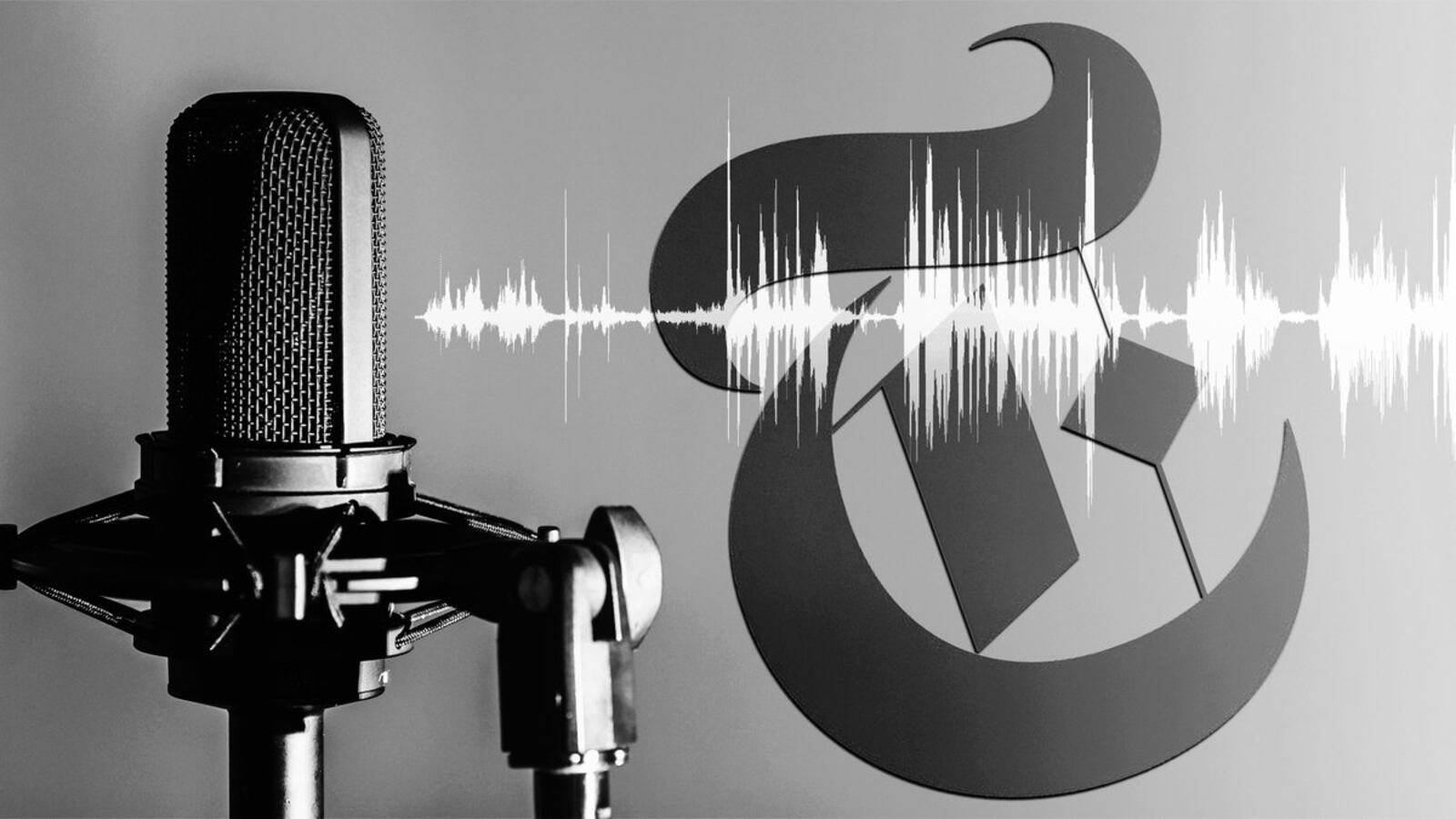Two journalists at the center of recent internal drama at The New York Times are set to team up for a new media project.
Bari Weiss, the controversial writer who recently departed the paper to launch a Substack newsletter, is close to inking a deal to launch a major podcast project, multiple people with knowledge of the matter told The Daily Beast. While the well-known former New York Times columnist will be the face of the podcast, Weiss has also enlisted her friend and former colleague Andy Mills, a former top Times audio staffer who left the paper in February following years-old allegations of workplace misconduct. The deal is being negotiated by talent agency powerhouse CAA, which represents a number of media figures including Weiss.
A major-platform podcast is a natural next step for the former Times opinion writer. Weiss is close with the popular podcast host Joe Rogan, who netted a deal with Spotify reportedly worth $100 million, and she has regularly appeared on his show. Weiss has also in recent years become a regular presence on talk shows, appearing as a recurring guest on HBO’s Real Time With Bill Maher and as a fill-in host on ABC’s The View.
But the podcast also represents something of a kiss-off to the Times, as it would join forces between two of the biggest lightning rods at the paper in recent years.
Almost immediately after joining the paper in 2017, Weiss’ reputation and columns—many of which were critical of social justice movements or unskeptically boosted right-wing internet personalities—were often the source of external criticism from many of the paper’s liberal readers. Weiss also seemed to irritate some Times staff who shared those readers’ concerns and politics, as well as those who were embarrassed by various incidents, including her citing a fake social media post to bash campus liberals in one of her columns and a tweet in which she somewhat confusingly used a Hamilton reference to suggest figure skater Mirai Nagasu, a California-born woman of Japanese descent, was actually an immigrant.
In her resignation letter from the paper last year, addressed to publisher A.G. Sulzberger, Weiss claimed that staffers who disagreed with her views had created a hostile work environment in which she faced “constant bullying” from colleagues and was “openly demeaned on company-wide Slack channels.”
“I do not understand how you have allowed this kind of behavior to go on inside your company in full view of the paper’s entire staff and the public,” she wrote in the note published on her personal website. “And I certainly can’t square how you and other Times leaders have stood by while simultaneously praising me in private for my courage. Showing up for work as a centrist at an American newspaper should not require bravery.”
And Mills, for his part, was a rising star within the paper after playing a key role in launching The Daily, one of the most popular podcasts in the country with more than 4 million downloads per day. But that goodwill dried up last year following his involvement in Caliphate, another Times audio venture with a much less successful outcome.
The podcast, which initially garnered rave reviews and praise upon release, centered around Shehroze Chaudhry, a Canadian man who told the podcast—hosted by reporter Rukmini Callimachi and produced by Mills—that he was radicalized online during the rise of ISIS and left the country to join the jihadist organization. But the narrative began to fall apart last year after Chaundhry was arrested by Canadian law enforcement for allegedly lying about his trip to Syria as part of a bizarre terrorism hoax.
Chaundhry’s arrest had major implications for the Times, which retracted much of the podcast’s reporting and returned some awards, and Callimachi was eventually reassigned to a different beat but has not published a story since late December. And as the reporting publicly unraveled, misconduct allegations made against Mills during his time at Radiolab, first detailed in a 2018 article in New York magazine’s The Cut, resurfaced online. The report claimed that he gave unsolicited back rubs, asked colleagues on dates, and at one point poured a beer on the head of a coworker during a social event.
CAA declined to comment on this story; Weiss and Mills did not respond to multiple requests for comment.








